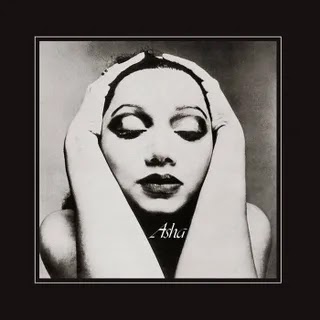A new compilation devoted to the charismatic, underappreciated Indian jazz singer captures her sizzling spirit and illustrates the breadth of her musicianship.
Asha Puthli is a spark of a person: a provocative, self-possessed diva who gargled with champagne, identified her age as “spiritually 6,000” and “emotionally 5,” and obtained a visa to stay in the United States by asking a stranger she met at the Museum of Modern Art to marry her. Unsurprisingly, the socialites and artists of the 1970s were drawn to her: The Indian jazz singer was friends with Salvador Dalí and Andy Warhol, a muse to Manolo Blahnik, and a sartorial influence for Debbie Harry.
But despite her outstanding cultural impact and kinetic vocal performances, Puthli always skirted mainstream fame. Over the last few decades, her music has had a minor resurgence: The Notorious B.I.G., Diddy, 50 Cent, and the Pharcyde all sampled her psychedelic, slinky “Space Talk,” and she’s appeared on a few electronica releases. Still, her name remains largely unknown. The Essential Asha Puthli, a new compilation from British imprint Mr. Bongo, captures her sizzling spirit and illustrates the breadth of her musicianship, spanning her gritty early covers, her bombastic disco numbers, and her winding jazz vocalizations. The compilation also serves as a document of a captivating woman learning to fully indulge her artistic, romantic, and aesthetic desires.
Puthli’s audacious personality and unabashed sensuality guide these songs, which get bolder as the compilation progresses. Her playfulness and experimental impulses shine on opener “Pain,” which she recorded in 1968 with the Indian psychedelic rock band the Savages—on it, there are wordless yelps, vocal improvisations, and lo-fi textures. By the time she recorded the disco-funk song “The Devil Is Loose” eight years later, she had refined and embodied a sweeping bravado; the song possesses the beguiling conviction of someone shrugging silk off their shoulder. When the 1979 highlight “1001 Nights of Love (Reprise)” arrives, Puthli’s confidence soars. The bubbling synth cascades as Puthli whispers and gasps about the love and sex she craves. The Essential Asha Puthli shows that as her career evolved, she learned to channel that dramatic flair into music that exudes incomparable verve.
Puthli recorded 10 albums, but when none of her music really stuck with audiences in the ’70s and ’80s, she ultimately retired and raised her son in Palm Beach, Florida. In interviews, she has cited the prejudice of American record labels as part of the reason her career stalled: They wanted her to change her name to Anne Powers, and often failed to support Indian artists who didn’t make strictly Indian music.
More recently, she has inspired a new generation of young Indian American fans and artists—like R&B singer Raveena, who featured Puthli on her album Asha’s Awakening this year. As one of the very few South Asian women working in the entertainment industry at the time, and one who boldly asserted her desires, her story resonates with young listeners.
The intrigue also comes from her unique approach to cultural fusion: Unlike her peers, Puthli generally avoids pulling directly from South Asian instrumentation, language, or spirituality. “Chipko Chipko” is the only song in Hindi on the compilation, and she mostly focuses her innovation on vocal technique. As she said in an interview with Red Bull Music Academy, she perceives connections between jazz and Indian classical music because of “the improvisation, the minor chords, the free form, the liberalness of the art.” On “What Reason Could I Give” and “All My Life,” two songs from Ornette Coleman’s groundbreaking record Science Fiction that also appear on the compilation, she drew from the Indian classical music technique of taan (fast, improvised sequences of notes) and gamak (vocal embellishments added to notes). It worked: Where another vocalist might have had a difficult time keeping up with Coleman’s meandering compositions, Puthli’s croon sandwiches effortlessly between the rumbling saxophone and flitting drum lines.
Puthli’s sense of self is so strong on this compilation that it almost feels like she could do anything—write a check, read out a grocery list—and it would be just as compelling. She’s an immensely talented vocalist, but the true thrill of her music comes from hearing her play every version of herself. In a conversation for Interview magazine, Penelope Tree once asked Puthli, “Aren’t you royalty?” She responded: “Don’t insult me, I’m divinity.” Her vision of herself was flamboyant and grandiose, and The Essential Asha Puthli confirms that it was entirely warranted.



0 comments:
Post a Comment